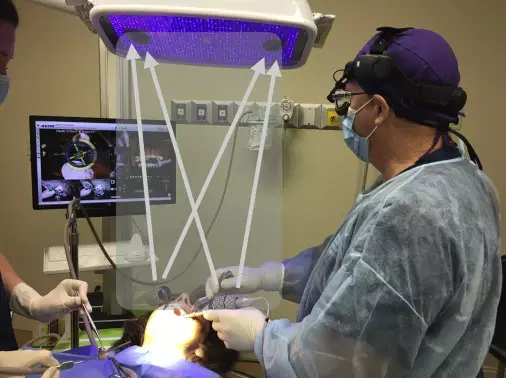- Home
- Medical news & Guidelines
- Anesthesiology
- Cardiology and CTVS
- Critical Care
- Dentistry
- Dermatology
- Diabetes and Endocrinology
- ENT
- Gastroenterology
- Medicine
- Nephrology
- Neurology
- Obstretics-Gynaecology
- Oncology
- Ophthalmology
- Orthopaedics
- Pediatrics-Neonatology
- Psychiatry
- Pulmonology
- Radiology
- Surgery
- Urology
- Laboratory Medicine
- Diet
- Nursing
- Paramedical
- Physiotherapy
- Health news
- Fact Check
- Bone Health Fact Check
- Brain Health Fact Check
- Cancer Related Fact Check
- Child Care Fact Check
- Dental and oral health fact check
- Diabetes and metabolic health fact check
- Diet and Nutrition Fact Check
- Eye and ENT Care Fact Check
- Fitness fact check
- Gut health fact check
- Heart health fact check
- Kidney health fact check
- Medical education fact check
- Men's health fact check
- Respiratory fact check
- Skin and hair care fact check
- Vaccine and Immunization fact check
- Women's health fact check
- AYUSH
- State News
- Andaman and Nicobar Islands
- Andhra Pradesh
- Arunachal Pradesh
- Assam
- Bihar
- Chandigarh
- Chattisgarh
- Dadra and Nagar Haveli
- Daman and Diu
- Delhi
- Goa
- Gujarat
- Haryana
- Himachal Pradesh
- Jammu & Kashmir
- Jharkhand
- Karnataka
- Kerala
- Ladakh
- Lakshadweep
- Madhya Pradesh
- Maharashtra
- Manipur
- Meghalaya
- Mizoram
- Nagaland
- Odisha
- Puducherry
- Punjab
- Rajasthan
- Sikkim
- Tamil Nadu
- Telangana
- Tripura
- Uttar Pradesh
- Uttrakhand
- West Bengal
- Medical Education
- Industry
Dynamic navigation assisted system increases accuracy of implant placement at cost of prolonged surgical time

Dynamic navigation assisted system increases accuracy of implant placement at cost of prolonged surgical time suggests a new study published in the Clinical Oral Implants Research.
To assess dental implant placement accuracy with a dynamic computer-assisted implant surgery (dCAIS) system and a freehand approach. Secondarily, to compare the patients' perception and quality of life (QoL) with the two approaches.
A double-arm randomized clinical trial was conducted. Consecutive partially edentulous patients were randomly allocated to the dCAIS or standard freehand approach groups. Implant placement accuracy was evaluated by overlapping the preoperative and postoperative Cone Beam Computer Tomographs (CBCT) and recording linear deviations at the implant apex and platform (in mm) and angular deviations (in degrees). Questionnaires recorded self-reported satisfaction, pain and QoL during surgery and postoperatively.
Results
• Thirty patients (22 implants) were enrolled in each group.
• One patient was lost to follow-up.
• A significant difference (p < .001) in mean angular deviation was found between the dCAIS (4.02°; 95% CI: 2.85 to 5.19) and the FH groups.
• Linear deviations were significantly lower in the dCAIS group, except for the apex vertical deviation, where no differences were found.
• Although dCAIS took 14 min longer , patients in both groups considered the surgical time acceptable.
• Postoperative pain and analgesic consumption during the first postoperative week were similar between groups and self-reported satisfaction was very high.
dCAIS systems significantly increase the accuracy of implant placement in partially edentulous patients in comparison with the conventional freehand approach. However, they increase the surgical time significantly and do not seem to improve patient satisfaction or reduce postoperative pain.
Reference:
Jorba-García, A., Bara-Casaus, J J., Camps-Font, O., Sánchez-Garcés, M Á., Figueiredo, R., & Valmaseda-Castellón, E. (2023). Accuracy of dental implant placement with or without the use of a dynamic navigation assisted system: A randomized clinical trial. Clinical Oral Implants Research, 00, 1– 12. https://doi.org/10.1111/clr.14050
Dr. Shravani Dali has completed her BDS from Pravara institute of medical sciences, loni. Following which she extensively worked in the healthcare sector for 2+ years. She has been actively involved in writing blogs in field of health and wellness. Currently she is pursuing her Masters of public health-health administration from Tata institute of social sciences. She can be contacted at editorial@medicaldialogues.in.
Dr Kamal Kant Kohli-MBBS, DTCD- a chest specialist with more than 30 years of practice and a flair for writing clinical articles, Dr Kamal Kant Kohli joined Medical Dialogues as a Chief Editor of Medical News. Besides writing articles, as an editor, he proofreads and verifies all the medical content published on Medical Dialogues including those coming from journals, studies,medical conferences,guidelines etc. Email: drkohli@medicaldialogues.in. Contact no. 011-43720751


